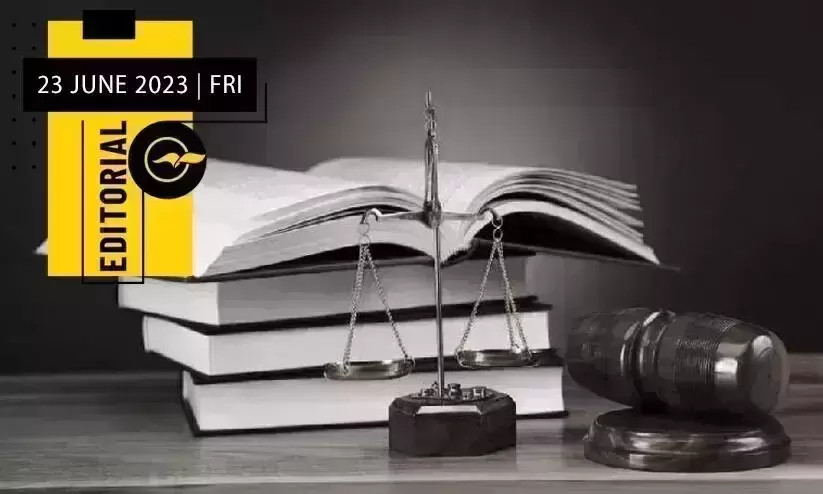
The clamour for Uniform Civil Code again
text_fieldsEver since the 22nd Law Commission came into existence in November 2022, it looks like proceeding with agenda dear to the BJP government. The six-member commission, headed by former Karnataka High Court Chief Justice Rituraj Awasthi, and including former Kerala High Court judge Justice KT Sankaran and four others, started functioning in December 2022. When the Supreme Court directed that the Sedition Act should be kept in abeyance, the Commission paused for a while and later recommended that the said Act should be retained without major changes. Not only that, it even suggested that some punishments should be made more stringent. Now, the Commission issued a notification on the 14th of this month inviting the opinions of religious scholars and the public regarding the implementation of the Uniform Civil Code by abolishing the personal laws that currently exist within different communities. The Commission's action was triggered by a note from the Union Law Ministry with regard to this.
Uniform Civil Code has always been a main agenda for the ruling BJP at the Centre. During the election campaign in Gujarat last December, the party had announced that it would implement a Uniform Cvil Code. The key driver of the ruling party in this is to gain the favour of the majority community by showing that it is going to end the 'special privileges' enjoyed by the minorities on the basis of their personal law, and another is to actually denying minorities the right to maintain personal law based on their religion. The tenure of the Law Commission has also been extended till August 2024, with the campaign for the 2024 Lok Sabha looming ahead. The 185-page report issued by the 21st Law Commission had said that a Uniform Civil Code was neither necessary nor practical at this stage, but that if any discriminatory practices persist on account of any religion, they should be studied and amended. Also, the 21st Law Commission also recommended some common amendments across all personal laws on the subject of marriage and divorce. The Directive Principles of State Policy in Article 44 of the Constitution states that the State shall endeavour to make a uniform civil code available to its citizens However, many such objectives have been envisaged in the Constitution, including the prohibition of liquor. It is also clear that none of them is absolute law or enforceable as law through the courts like fundamental rights. Yet the BJP is campaigning as if those who oppose the Uniform Civil Code are ones who do not accept the Constitution. Union Defence Minister Rajnath Singh also echoed such viewpoint the other day. At the stage of drafting the Constitution, there was a discussion to make a Uniform Civil Code as a fundamental right and in the end, it was agreed that such matters could be written down as a final goal.
The Uniform Civil Code argument does not fall in line with the Constitution's concept of religious diversity. For example, followers of Islam prescribe specific rights and obligations for each family relationship according to their religious injunctions and values. Inheritance rights of individuals are also determined accordingly. To argue that it should all be uniform at the national level would be to deny the space for religious pluralism. Tribes and minority communities living in different regions have their own traditional marriage practices and inheritance laws. It is clear that it is impractical to eliminate all these diversities in one go through a single law, as stated by the previous Law Commission. In fact, not only in personal laws but also in criminal laws, many of the provisions that come under Union law are implemented by different states in different ways. The criminal laws of the states differ as a result of over 100 amendments enacted on them. Provisions for anticipatory bail also differ from state to state. These are natural imperatives in a federal system. Among the Muslims themselves, the Shariah Act of 1937 is not in force in Jammu and Kashmi, and the state is governed by rules based on local traditions. Although Goa's Uniform Civil Code is often cited as a model, it was modelled on the Portuguese Act of 1867. If one looks at the merits of a Uniform Civil Code in these aspects, one can see that it is not an idea derived after a detailed study. Thus, the ruling class is now mostly focusing on the marginalization of minorities. The question now is whether the highest forum, the Law Commission, should also be made to play a role in its favour.


























